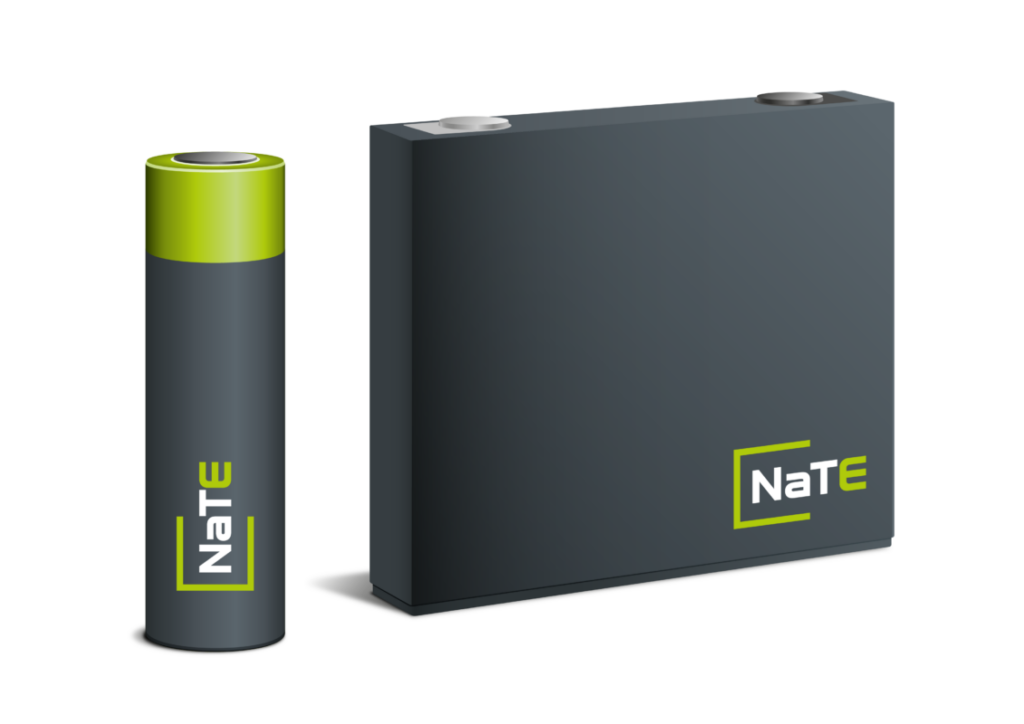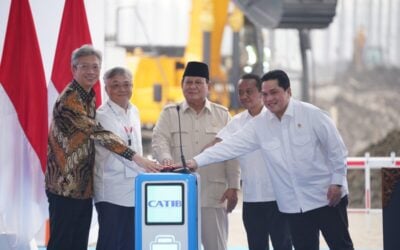
Sodium-ion battery technology could be the “perfect solution for applications where energy density is not paramount,” according to the chief executive of battery tech company BMZ Group.
Germany-headquartered BMZ Group this week launched a range of sodium-ion (Na-ion) battery products, branded the NaTE SERIES. The battery cell product range includes prismatic and cylindrical form factor cells, and their launch comes after “extensive analysis and research”, the company claimed.
Enjoy 12 months of exclusive analysis
- Regular insight and analysis of the industry’s biggest developments
- In-depth interviews with the industry’s leading figures
- Annual digital subscription to the PV Tech Power journal
- Discounts on Solar Media’s portfolio of events, in-person and virtual
However, they will not be widely commercially available for a while. BMZ has got to the stage of testing prototype cells in 26700 and 32140 formats, with further formats in development. The company said cells are already being made for specific customers’ projects, and capacity exists to deliver more should demand arise, but series production is not expected to begin until summer 2025, or thereabouts.
CEO and founder Sven Bauer said the Na-ion technology: “offers us and our customers unique new opportunities as well as rapidly growing market potential, and we are looking forward to breaking new ground together”.
Sodium-ion has theoretical advantages that could make it complementary to lithium-ion in the battery market, if not a direct competitor.
The energy density of most types of lithium battery tends to be much higher than that of its newer counterparts, but on the flipside, sodium-ion batteries could be produced much more cheaply.
Meanwhile, a switch could enable a decoupling from the supply chains for lithium that are subject to huge volatility and fluctuations in demand, from sectors that include electric vehicles (EVs) and consumer electronics, as well as stationary battery storage.
There could also be a safety advantage, with the less reactive sodium cells not subject to dendrite formation that can cause lithium cells to short circuit, and ultimately to thermal runaway.
“The sodium-ion technology is the perfect solution for applications where energy density is not paramount,” BMZ Group CEO Bauer said.
“This includes industrial and home storage systems or industrial trucks, such as forklifts.”
Na-ion ‘expected to become popular choice’ for developers
As part of our Year in Review articles, at the end of 2023, and looking ahead into this year, Energy-Storage.news canvassed views from a number of developers of BESS projects on the technology trends they see coming up.
“Storage technologies are always evolving, so you should keep an eye out for the development of sodium-ion batteries, which can be one of the few technologies able to achieve a market share comparable to lithium batteries, in the short term,” said Julian Gerstner, head of energy storage at Baywa r.e.
Gerstner noted that sodium-ion battery development is largely in the R&D stage, but that the devices were expected to “become a popular choice for battery storage systems in the near future” (Premium access).
Interestingly, other respondents including Jeff Bishop, CEO of Key Capture Energy, said that newer tech like sodium-ion captures the imagination and media attention, but that advances in lithium-ion tech should not be ignored, because that is likely what will push the needle on stationary storage deployments.
In November last year, sodium-ion battery firm Altris, in partnership with European battery mass manufacturing startup Northvolt, claimed a “breakthrough” in creating Na-ion batteries with 160Wh/kg energy density.
Designed for stationary energy storage applications, the energy density of the pair’s battery tech compares favourably to the lower end of the 120 – 260Wh/kg range typically expected of Li-ion devices.
Price reporting agency (PRA) Fastmarkets recently wrote in a Guest Blog for this site that sodium-ion and solid-state batteries have an opportunity to gain market share amid the lithium supply crunch. In China, construction is reportedly underway on a 50MW/100MWh sodium-ion grid-scale battery storage system project, in the country’s Hubei province.
Again, with that being said, Li-ion doesn’t look likely to get knocked off its perch as the go-to technology, especially for longer range EVs or even BESS installations in more land-constrained areas.
BMZ’s Sven Bauer said the company, which makes and sells complete energy storage solutions in addition to cells, racks and modules, invests around half of its profits annually into R&D activities, but the enthusiasm it has towards the potential of sodium-ion – or other new technologies – “does not mean that we are abandoning any existing technologies”.
“As a pioneer in lithium-ion battery technology, we have made history in the world of batteries, and we continue to value their unrivaled energy density. Thanks to our many years of expertise, we are the industry experts who can give customers sound advice on which cell chemistry to use for any given application.”
BMZ’s Na-ion devices are being made by its specialist lithium-ion battery cell manufacturing subsidiary, TerraE.






